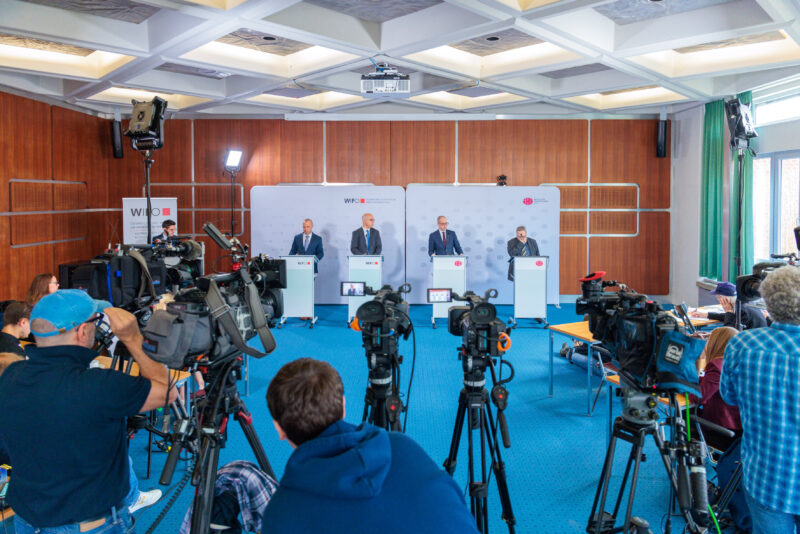
Development of Austrian Foreign Trade
In the FIW Annual Report on the Development of Austrian Foreign Trade of February 2020, international trade conflicts, brexit and the Phase 1 agreement between China and the USA were identified as the main risk factors for the forecast of the development of Austrian foreign trade. The results from the original FIW Annual Report became obsolete due to the pandemic and the necessary health policy and restrictive economic measures, especially in the short term. In the medium term, however, and after the health crisis has been overcome, the topics from the original annual report, such as trade conflicts and the reaction of trade policy to climate policy requirements, are likely to become the focus of attention again.
The COVID-19 pandemic had a massive impact on international economic activities and thus on Austria's foreign trade. The present October update of the FIW Annual Report "The Austrian Foreign Trade" of February 2020 presents a new short-term forecast for the development of Austrian foreign trade in 2020 and 2021, based on information on the Austrian economic and foreign trade development in the first half of 2020 and on international forecasts on the economic framework conditions.
The global economy was affected by the economic effects of the COVID-19 pandemic, especially in the second quarter of 2020, and will shrink by about 4.5 percent this year. Such a dramatic collapse is unique since the end of the Second World War and currently leaves deep marks in most of the world's economies.
Since exports are more severely affected by the COVID-19 pandemic than imports, the contribution of net exports to overall economic growth will thus be considerably negative in 2020, with a minus of 1.3 percentage points. In 2019, the contribution of net exports to GDP growth was still slightly positive at 0.4 percentage points. Austria's foreign trade relations are thus contributing in part to the overall economic recession, which is forecast to amount to 6.8 percent.
The COVID-19 pandemic affects Austrian foreign trade in services even more than trade in goods. The still large extent of COVID-19-related uncertainty in the economic system dampens additionally the demand for capital goods, machines and motor vehicles. These areas are decisive for the Austrian foreign trade development on the macroeconomic level and therefore a sustainable recovery will only be possible after this uncertainty has disappeared.
In addition to the current international environment and the short-term forecast of foreign trade, the FIW deals in a separate chapter of this report with the question to what extent the COVID-19 pandemic and the resulting changes in consumer and business behaviour (voluntary or forced, e.g. through restrictions on freedom of travel) will have lasting structural effects on global and European foreign trade. The FIW authors focus on the global value chains as the factor, where changes are to be expected and discuss the possible medium-term shifts in the economic structure due to the COVID-19 shock.
The FIW annual report is available for download here.
The data attachments can be found here.
Please contact
























